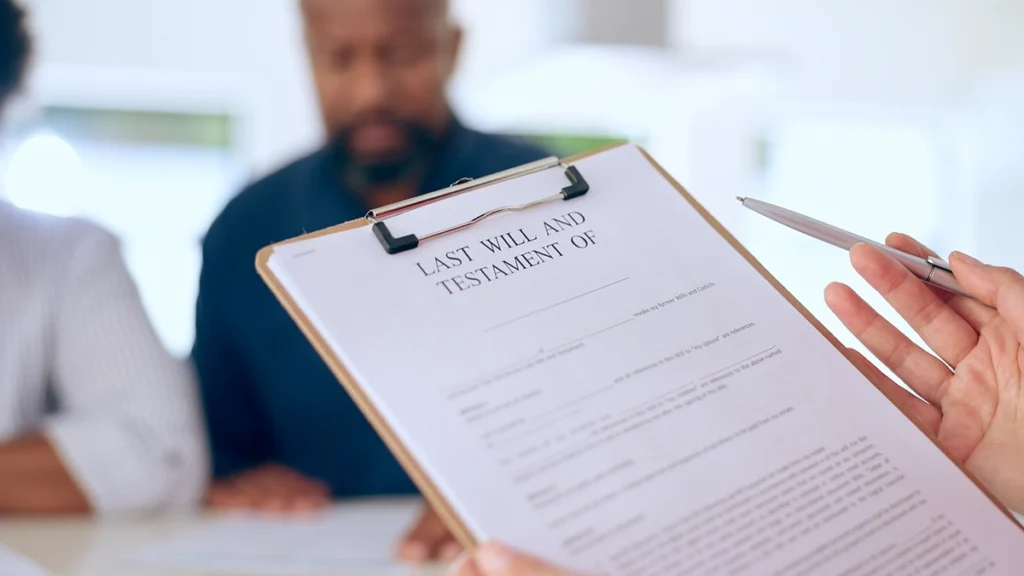When families start thinking about the future, one of the biggest worries is how to protect a home without leaving loved ones tangled in court delays, fees, and stress. Many wonder if a Lady Bird Deed can truly avoid probate, the process that often brings months of waiting, unexpected costs, and emotional strain. The answer offers real comfort.
With a Lady Bird Deed, homeowners keep full control during their lifetime, and when the time comes, the property transfers automatically to loved ones. No court battles, no unnecessary expenses.
It is a simple, powerful way to secure your legacy and bring peace of mind knowing your family can move forward without hardship.
Why Probate Creates Stress For Families
Probate is the formal court process of validating a will, paying debts, and distributing property. On paper, probate ensures legal order. In practice, it can be long, expensive, and emotionally draining. Families may wait nine months or more before final resolution. Attorneys often charge percentages of the estate, and mandatory court costs add up.
Even modest estates can lose thousands of dollars. Worse still, probate files are public, which means personal details become part of the record. For a family that values privacy, this exposure can feel intrusive and unsettling.
That desire to spare loved ones from this process is what leads many to Lady Bird Deeds. By arranging for property to pass automatically outside of court, families can preserve privacy and reduce costs, all while ensuring heirs receive their inheritance without delay.
In Florida, for example, one homeowner in her early 60s wanted her son to inherit the house she raised him in. She created a Lady Bird Deed but later refinanced when she needed funds to renovate. When she passed away, her son recorded her death certificate, and ownership transferred instantly. He was able to grieve without the added stress of court hearings or mounting legal fees.
The Structure Of A Lady Bird Deed
A Lady Bird Deed creates an “enhanced life estate.” The homeowner, called the life tenant, retains full rights during their lifetime. They may sell, lease, mortgage, or even revoke the deed if circumstances change. Upon death, ownership transfers instantly to the named beneficiary (the remainderman).
No probate court is required, and no judge oversees the transfer. This seamless transition is why many consider it one of the most practical estate planning tools available in the states that recognize it.
Compared to a traditional life estate deed, which locks in beneficiaries and strips some control, the Lady Bird Deed is far more flexible. Families value this balance between control during life and certainty after death.
It offers freedom in the present and stability in the future.
Historical Roots Of The Name
The term “Lady Bird Deed” originated in the 1980s when a law professor illustrated the concept using President Lyndon B. Johnson and his wife, Lady Bird Johnson, as an example.
The Johnsons never used the deed themselves, but the name caught on. Over time, “Lady Bird Deed” became shorthand for the Enhanced Life Estate Deed, even appearing in official state publications. The informal nickname stuck because it helped families remember a complex legal concept in simpler terms.
Where Lady Bird Deeds Apply
These deeds are not recognized everywhere. They are allowed only in Florida, Texas, Michigan, West Virginia, Vermont, and North Carolina. Courts and county clerks in those states understand the framework and process the documents accordingly.
In other states, families may need different approaches, such as Transfer-on-Death Deeds or living trusts. The limited recognition highlights the need to confirm local law before relying on this method as part of an estate plan.
Lady Bird Deed Versus A Will
One fact families must understand is that a Lady Bird Deed, once properly executed, overrides a will for that property. If a will leaves the home to one person but the deed names another, the deed controls. This certainty is why planners urge families to review all estate documents together.
Alignment avoids confusion and ensures that intentions match outcomes. Without that review, families may face unnecessary disputes that the homeowner never intended.
Flexibility That Homeowners Value
The hallmark of the Lady Bird Deed is independence. Owners remain free to sell, lease, or mortgage the property. They may even revoke the deed and choose a different heir later. This flexibility reassures homeowners who want to plan but fear being locked into decisions.
By combining present control with future certainty, the deed answers one of the biggest hesitations families have about estate planning tools. It also allows families to adapt when circumstances change, whether due to health needs, financial pressures, or family dynamics.
Medicaid And Healthcare Planning
In several of the states that recognize Lady Bird Deeds, these documents also interact favorably with Medicaid planning. Because the deed does not transfer ownership during life, it may not trigger Medicaid penalties tied to gifting. Upon death, the home often avoids Medicaid estate recovery claims, leaving it to heirs rather than subjecting it to state reimbursement.
However, rules differ by state, and families should confirm the details before relying on this benefit. Still, for those navigating long-term care, the Lady Bird Deed can offer peace of mind that the family home will not be lost to recovery claims.
Financial Advantages Compared To Probate
Families often ask what the real savings look like. Probate costs vary, but attorney fees commonly run 3% to 5% of the estate. On a $300,000 home, that can mean $9,000 to $15,000. Add court filing fees, publication costs, and potential delays, and the burden grows heavier.
By contrast, recording a Lady Bird Deed often costs less than a few hundred dollars in county fees. That stark difference is why so many households view the deed as a cost-effective choice.
The financial impact can mean the difference between leaving heirs an asset and leaving them a burden.
Risks And Limitations To Consider
Lady Bird Deeds are not flawless. They do not apply to bank accounts, vehicles, or other assets. They only cover real property. If a beneficiary dies before the homeowner and no update is made, probate may still become necessary. And because the deed overrides a will, failing to coordinate estate documents can create conflicts.
Families must also accept that Lady Bird Deeds remain state-specific, meaning someone who moves may find the tool no longer applies. Understanding these boundaries helps families use the deed as part of a broader, coordinated plan.
Misunderstandings That Cause Confusion
Some people mistakenly believe that beneficiaries gain rights immediately after the deed is signed. They do not. The remainderman’s rights arise only at the homeowner’s death. Others think they cannot refinance or sell once the deed is filed.
In reality, the deed protects their freedom to act. Clarifying these misconceptions helps homeowners trust that they remain in control until their last day, while still securing their legacy for loved ones.
Integrating Into A Broader Plan
Most estate planners view a Lady Bird Deed as one piece of a puzzle. Families often pair it with wills, healthcare directives, and financial powers of attorney. Together, these tools create a layered plan that covers not just the home but also medical decisions and financial accounts.
This coordination ensures consistency and prevents gaps that could otherwise send part of the estate into probate. Families who have used this approach often share that it simplified not only the legal process but also the emotional conversations about the future.
Preventing Family Disputes
Beyond legal mechanics, Lady Bird Deeds carry emotional value. When property transfers instantly and clearly, children are less likely to argue. Families avoid the resentment that can grow during long court proceedings. Parents often say their greatest relief comes from knowing they left no confusion behind.
By sparing loved ones from probate, they also protect harmony during a time of grief. This peace of mind is one of the most powerful yet understated benefits of the deed.
Comparing Lady Bird Deeds To Alternatives
In states without Lady Bird Deeds, homeowners often look to Transfer-on-Death Deeds or living trusts. Transfer-on-Death Deeds function similarly by naming a beneficiary but may lack the same lifetime flexibility. Living trusts, while powerful, require more setup and ongoing management. Each tool has strengths and drawbacks, but in the states that allow it, the Lady Bird Deed occupies a unique middle ground of simplicity, flexibility, and clarity. By weighing the options, families can select the approach that best meets their goals and comfort levels.
Looking Forward
As families continue to seek better estate planning options, the Lady Bird Deed stands out for its balance of independence and certainty. Though recognized in only six states, it already helps thousands of households. Whether other states adopt similar measures remains uncertain. For now, in places like Florida and Texas, Lady Bird Deeds remain one of the clearest ways to answer the common question: can probate really be avoided without giving up control? The answer, as many families have discovered, is yes.
Key Takeaways
- A Lady Bird Deed avoids probate by transferring property instantly at death.
- It overrides a will for that property once properly executed.
- It preserves full homeowner control during life.
- These deeds are recognized only in Florida, Texas, Michigan, West Virginia, Vermont, and North Carolina.



